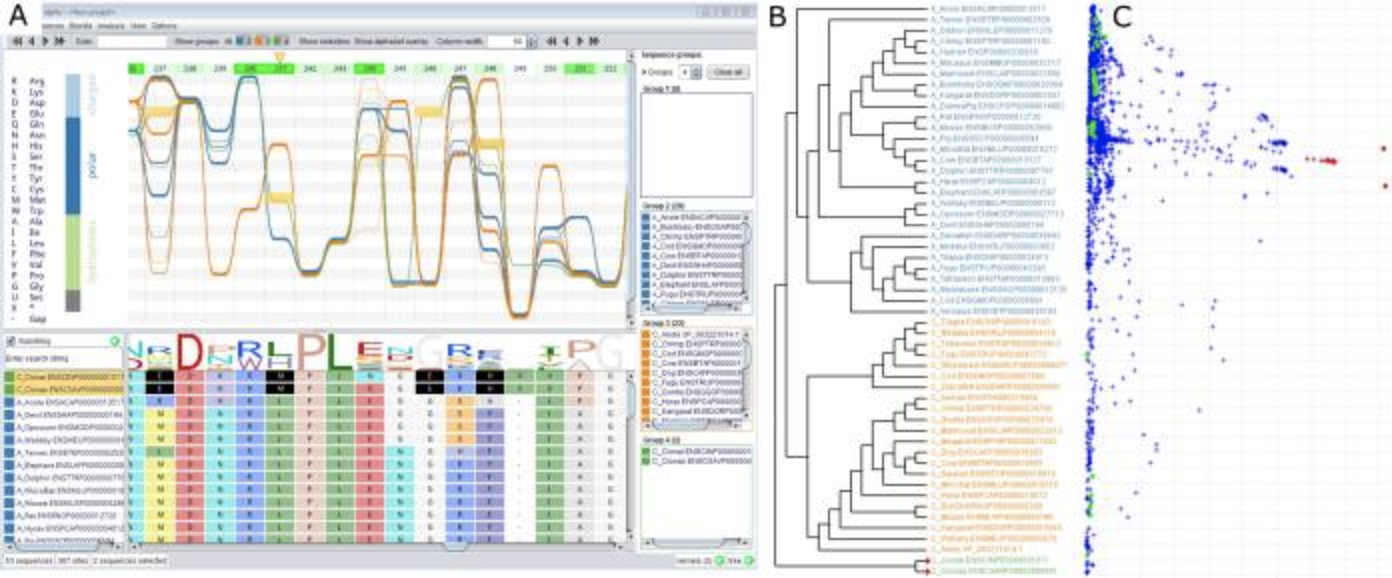Alvis
 https://www.ncbi.nlm.nih.gov/pmc/articles/PMC4856975/
https://www.ncbi.nlm.nih.gov/pmc/articles/PMC4856975/
Methods
linear single view single scale single focus contiguous no abstraction no arrangement no interconnection point contiguous typeTool
| Access Format | standalone app |
| Supported Files | fasta |
| License | GNU Affero General Public License version 3 |
| Tool name | Alvis |
| Tool Link | https://bitbucket.org/rfs/alvis/src/master/ |
| Documentation | https://bitbucket.org/rfs/alvis/src/master/doc/ |
Paper
ALVIS: interactive non-aggregative visualization and explorative analysis of multiple sequence alignments
Schwarz RF, Tamuri AU, Kultys M, King J, Godwin J, Florescu AM, et al. ALVIS: interactive non-aggregative visualization and explorative analysis of multiple sequence alignments. Nucleic Acids Res. academic.oup.com; 2016;44: e77.
Abstract
Sequence Logos and its variants are the most commonly used method for visualization of multiple sequence alignments (MSAs) and sequence motifs. They provide consensus-based summaries of the sequences in the alignment. Consequently, individual sequences cannot be identified in the visualization and covariant sites are not easily discernible. We recently proposed Sequence Bundles, a motif visualization technique that maintains a one-to-one relationship between sequences and their graphical representation and visualizes covariant sites. We here present Alvis, an open-source platform for the joint explorative analysis of MSAs and phylogenetic trees, employing Sequence Bundles as its main visualization method. Alvis combines the power of the visualization method with an interactive toolkit allowing detection of covariant sites, annotation of trees with synapomorphies and homoplasies, and motif detection. It also offers numerical analysis functionality, such as dimension reduction and classification. Alvis is user-friendly, highly customizable and can export results in publication-quality figures. It is available as a full-featured standalone version (http://www.bitbucket.org/rfs/alvis) and its Sequence Bundles visualization module is further available as a web application (http://science-practice.com/projects/sequence-bundles).